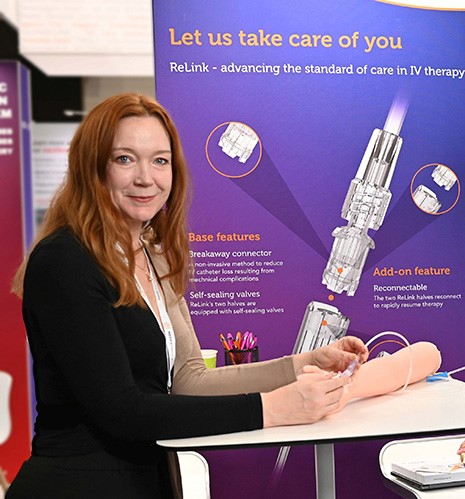Future Health Unveiled: Key Takeaways from Cairo’s Telemedicine and AI Workshop

By Abdulla S. Al-Mohannadi, Forums manager and research fellow, WISH
Communication and information technology systems play a pivotal role in advancing the healthcare system. Innovative health applications contribute to utilizing information and networks, catering to beneficiaries’ needs, and ensuring the delivery of high-quality, reliable, and precise services. Telemedicine, encompassing the use of electronic communication technologies for diagnostic and medical services, facilitates communication between healthcare practitioners, patients, and among professionals, enhancing crisis management, medical education, and the dissemination of health information.
Artificial intelligence signifies the amalgamation of automated learning algorithms and advanced data analysis within telehealth platforms. This integration enables healthcare specialists to achieve precise diagnosis, forecast outcomes, and formulate patient-specific treatment plans through data-driven and sound therapeutic decision-making, enhancing the efficiency and effectiveness of care delivery.
In the light of this, I have attended and participated workshop on “Telemedicine and Artificial Intelligence” was held in Cairo from 12 to 15 February 2024 at the headquarters of the Arab Administrative Development Organization (ARADO) under the umbrella of the Arab League.

The workshop’s objectives included fostering comprehension of telemedicine, imparting knowledge on the digital transition in healthcare, addressing challenges and benefits associated with telemedicine, and formulating regulatory frameworks encompassing clinical, technical, financial, and legal dimensions. The aim was to ensure the quality and integrity of telemedicine services, safeguarding the rights of providers and recipients. Additionally, the workshop aimed to enhance awareness of the impact of artificial intelligence on advancing telemedicine and improving patients’ experiences through e-health.
We were thirteen participants, representing Saudi Arabia, Iraq, Qatar, UAE and Egypt, actively engaged in the workshop.

I had the privilege of engaging in an electronic simulation utilizing artificial intelligence, skillfully presented by an esteemed colleague from Saudi Arabia. The showcased health platform effectively identifies symptoms of Parkinson’s through meticulously recording and sensing individuals’ movements. The gathered data undergoes thorough analysis, culminating in comprehensive health assessments that are skillfully presented.
Furthermore, I shared with my colleagues during the workshop the insightful WISH 2018 report titled “Harnessing Data Science and AI in Healthcare: From Policy to Practice”. This report argues for the need to harness specialized health experts to meet the need of emerging digitized software and technologies with global and regional case studies.
we as participants articulated significant insights and recommendations following the workshop, including:
- Advocate for the establishment of a dedicated body overseeing telemedicine and information centers within each Ministry of Health in the Arab States. Additionally, promote the creation of telemedicine units in regional health departments.
- Propose the enactment of laws and regulations governing telemedicine practices, aligning with World Health Organization (WHO) guidelines to ensure the protection of both physicians’ and patients’ rights.
- Learn from successful Arab States’ experiences in telemedicine, such as the Virtual Hospital at Ain Shams University.
- Formulate interim plans to implement telemedicine concepts and initiate primary healthcare services.
- Create electronic systems to secure and manage patient data, prioritizing confidentiality.
- Emphasize the introduction of telemedicine and artificial intelligence through comprehensive, long-term strategies focusing on data governance and security.
- Utilize health standards issued by the General Authority for Health Accreditation and Control of the Arab Republic of Egypt to promote telemedicine and ensure the quality of health services.
- Conduct awareness campaigns for telemedicine services through various methods, including demonstrations and e-motivation by health authorities and service providers, allowing patients to experience and assess applications.
- Implement measures to adopt telemedicine and electronic medical files, ensuring health facilities’ compliance.
- Establish a mechanism linking electronic medical files between health facilities.
- Integrate telemedicine with health insurance and coverage programs.
- Include telemedicine education in general medical, dental, and pharmacy schools.
- Develop guidelines approved by the Ministry for training medical personnel in telemedicine while maintaining data privacy.
- Advocate for additional studies and advanced workshops on the utilization of telemedicine and artificial intelligence.
- Establish a database of experts and workshop participants to enhance communication and facilitate the development of future workshops.



